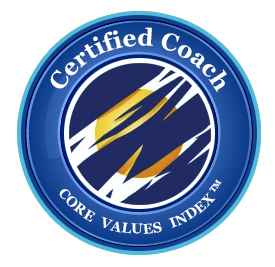
by Dr. JL Knight | Jul 1, 2019 | Decision Making, Leadership Coaching, Life Coaching, Mindset, Personal Transformation
Finding a competent and compatible coach is only half the battle. It’s also important to develop your own coachability.
If you’re like most professionals, you probably want to succeed, but you may resist coaching for reasons that you’re not even aware of. However, you can develop skills and qualities that will prepare you to accept guidance and act on it.
Learn how to become more coachable. Use this checklist to find the areas you need to work on so you can have a successful relationship with your coach.
Communication Skills:
- Listen closely. Pay attention to what your coach has to say. Look for the truth in any message instead of dismissing their perspective or trying to make excuses. Maintain eye contact and resist any urge to interrupt.
- Ask questions. Ensure you understand what your coach is telling you. Paraphrase their statements in your own words. Clarify any points you’re unsure of and ask for concrete examples.
- Take your time. Let yourself absorb information fully. Focus on responding thoughtfully rather than quickly. If a situation stirs up strong feelings, give yourself an opportunity to calm down so you can think clearly.
- Welcome feedback. Ask others for input frequently and graciously. It helps to stay in practice and have multiple viewpoints while you’re working with your coach.
- Watch your body language. Ensure that your gestures and expressions are friendly and consistent with your words. Coaches are human. It’s easier for them to fully engage with you when they feel respected and appreciated.
- Open up. Recognize that there is more than one way to approach the same goals. Consider your coach’s suggestions even when they’re different from your usual methods.
Other Skills and Qualities:
- Value learning. Are you excited about adding to your knowledge and stretching your skills? Learning is a mindset that helps you to make sounder decisions and adapt to change. It can also motivate you to persevere through the coaching process.
- Set goals. While your coach can help you to reach your goals, you need to be sure that your targets are specific and meaningful for you. Write your goals out and tell others about them so you’ll feel more accountable.
- Adjust your expectations. Do you understand the difference between coaching and consulting? A consultant is usually hired to fix a specific issue. A coach works with you to build your strengths so you can achieve the outcomes you desire.
- Cultivate gratitude. Thank your coach for the positive impact they make in your life. Putting their insights into action is also an effective way to show them that they’re making a difference.
- Be humble. Remember that your coach and anyone you meet has valuable things that they can teach you. Tame your ego so you can create productive relationships and take advantage of rewarding opportunities.
- Practice consistently. How can you take what you learn from coaching and use it to make positive changes in your work life? Develop a strategy for enhancing your performance and set specific goals for areas where you want to grow. Deliberate practice requires discipline and effort, but it pays off.
- Evaluate your progress. Self-examination is an important part of the coaching process. Reflect on the areas that you’ve already covered and what you want to do next. Enjoy discovering more about yourself and your abilities.
Being coachable is about being ready and willing to learn and grow. Unlock your potential so you can achieve greater personal and professional success. Coaching can help you to clarify your vision and leverage your strengths if you know how to use the resources your coach provides.
Written by:
The Business Transformation Coach, LLC
Copyright © 2019

by Dr. JL Knight | Feb 11, 2019 | Personal Transformation
You know enough about the world to have a pretty good idea of what it will take to live the life you desire. Your brain can quickly give you an accurate picture of the person you need to become to create the change you desire. All you have to do is ask.
Once you have this answer, you can begin living as that person today. You don’t have to wait. You can think, act, and adopt the beliefs of a fit person, someone with a great social circle, or whatever type of person you are – the one in your dreams.
Look to the future to change your present with these strategies:
- Look ahead and visualize the life you’d like to have. Imagine yourself 10 years from now living the life of your dreams. Notice how you feel and behave. Imagine how you deal with your average day. Imagine the income, physique, social life, relationship, and so on that, you’d like to have.
- What do you eat each day? How much do you exercise? What type of exercise do you do? What are your attitudes and beliefs around diet and exercise?
- How much money do you make? How do you make it? What are your saving and spending habits?
- Think about your future social life. How many friends do you have? How often do you go out? Where do you go? How do you manage that social circle? How often do you communicate with them?
- If your ideal future includes a partner, how do you manage that? What do you do each day to keep your relationship strong?
- Consider the habits and hobbies you’d have, too.
- Take a look at your current life and behavior. Contrast the above with your current life. Take particular note of the differences in how you behave and think today versus your future self. What changes do you need to make?
- List the behaviors you would like to incorporate into your life to match your future self. If you can think and act the same way, you’ll eventually attain the same results.
- Begin making the changes. Start slowly and only make a couple of changes at first. You might decide to cut out the candy, go to the gym three times a week, and go out once a week with a friend.
- Or, you might decide to review your goals each night, keep a journal, and start meditating.
- Once the first set of habits starts to stick, add a few more.
- Adopt a new mindset. When you’re faced with a decision or challenge, ask yourself what your future self would do in the same situation. Begin making decisions this way and see what happens.
- Expect resistance. It won’t be easy to approach life with a new perspective and new behaviors.
- It will feel uncomfortable at first, but that’s good. When you do something uncomfortable, your life can change.
- When you do the things you’re used to doing, things stay the same. That’s comfortable, but that’s not progress.
Why wait 10 years to begin acting and believing a certain way? You can start right now and speed up your progress considerably. Imagine yourself living your ideal life 10 years from now and simply adopt the same habits, behaviors, thoughts, and beliefs. Success will come quicker than you ever imagined.
You Can Do It!
By Dr. Jacqueline L. Knight
Copyright © 2019 The Business Transformation Coach, LLC. All Rights Reserved.

by Dr. JL Knight | Jan 14, 2019 | Overcome Negativity, Personal Transformation, Transformation
We live in a society where value and status are placed on
material things like cars, homes, and clothes and we all dream about having
more – more money, bigger homes, more cars – yet we never seem to be happy. In
fact, instead of being thankful for what we do
have, we feel envious of the people who have more than us.
Being in constant competition with neighbors, coworkers, or familymembers can be exhausting! Eventually, you’ll lose sight of the importantthings in life, such as your children, relationships, and health. If you place astrong value on things, you won’t feel very fulfilled and you’ll end up creating an inner tension that will onlydrive you away from happiness. After all, happiness isn’t defined by the amountof stuff you collect.
Remember What You’re Grateful For
If you had to list what’s good in your life, right now, and you weren’t allowed to mention any material possessions, would you have a hard time coming up with the list? Do you have a hard time just being happy and grateful because you’re always longing for something bigger or better?
We all have big dreams for ourselves, but we can’t begin to work toward our goals until we accept who we are and where we’re at right now. That acceptance begins with a sincere appreciation for the life lesson’s of yesterday and the talents and skills we have today.
Sure, we all want a big house, nice furniture, big-screen TVs, better paying jobs, luxury cars, gourmet food, fancy jewelry, and designer clothes – but how can we appreciate the finer things in life if we can’t be thankful for the simple things? After all, a big-screen TV won’t matter if you didn’t have your eyes to see and your ears to hear! Of course, desiring goodquality items isn’t wrong, but your focus should be on living and enjoying yourlife, not things.
- Expressing your gratitude
doesn’t have to be reserved for Thanksgiving dinner. Share with your family why
you’re grateful today and really listen to what your family says
in return.
- Encourage your kids to dig
deep in their souls to find their gratitude. Kids need to learn
how to take their focus off of material items and onto influential people,
positive experiences, and quality of life.
Refocus Your Thoughts with a Gratitude Journal
A gratitude journalis simply a notebook where you write down everything in life you’re thankful for. It doesn’t have to take more than 5 minutes in the early morning or beforebed each night. The idea is to clear your mind, reflect on the day, and see thegoodness in life.
Here are some tips to help you get started:
- Buy or make yourself a
nice, attractive journal so you’ll take care of it and will look forward
to journaling everyday.
- Reflect
on anything new that came your way: new friends, clients, or opportunities.
- Don’t
be shy about repeating things from previous days; praising your good
health and loving family never tires.
- Did a friend do something nice for you
today? Did you find a lost item? Did you handle a difficult situation well?
Gratitude isn’t reserved for
really big things; you can be grateful for the small things, too.
- Periodically,
go back over your journal and read all that you’re grateful for. It’ll be
a great pick-me-up on especially difficult days.
The more you add to your journal, the more you’ll teach your mind a new way of thinking. Your outlook on life will become morepositive and you’ll feel a deeper sense of connection with those around you. And you’ll discover the sheer beauty that already exists in your life.
By Dr. Jacqueline L. Knight
Copyright © 2018 The BusinessTransformation Coach, LLC

by Dr. JL Knight | Jan 7, 2019 | Overcome Fear, Personal Transformation, Transformation
If you begin to use affirmations in your life, you’ll
unleash a power that can eliminate the control fear has over you. You can
use affirmations to get you through the tough times and gain self-confidence.
Why You Have Fears
Throughout life, many situations will cause fear, but fear isn’t always bad! It can actually play an important role in your life.
Fear can instantly get your heart pumping faster and give you the adrenalin rush needed to get you away from a threatening situation. If someone were to chase you down the street, your fear could push you to run faster or think on your feet. In fact, fear may be necessary to drive you to safety.
Unfortunately, fear also comes at times when you’re in no danger at all. That’s when fear becomes destructive. These types of fears can hinder your daily lifestyle and make you act in ways that you wish you didn’t.
These are the fears to overcome. Irrational fears, like the fear of being in an elevator or a fear of speaking in public, could cause you to avoid situations that could provide tremendous value in your life. Instead of avoiding fearful situations, learn to conquer your fears and live your life to the fullest.
How Affirmations Can Help
Affirmations can help you overcome your fears by keeping your focus on being positive and in the present moment.Affirmations are short, positive statements that are written in the presenttense. They describe how you want to feel as if you already experience thoseempowering emotions.
You can find affirmations that pertain to your specific fear, or you can write your own. For example, if you fear elevators, you can recite to yourself: “I feel calm and relaxed right now.” Repeat this phrase along with other affirmations next time you ride in an elevator. Find the courage within yourself to face the fearful situation.
The Importance of Believing in Yourself
Affirmations only provide power for you if you bring to them a determination to get over your fears. Repeated on a daily basis, affirmations program your mind to believe and act differently in the stressful situations you’re seeking to overcome. But you must be consistent and keep an open mind for them to work for you.
People get over their fears every day. You can find the courage and strength within yourself to finally declare that you’re free from fear! Even if affirmationsseem kind of silly at first, stick with it. They might not make you feel courageous immediately, but give it some time. Keep repeating them and you will see positive results.
Affirmations for Any Fear
You can find affirmations for almost any fear or negative emotion. But it may be more effective to write your own. Simply imagine yourself in the situation, responding perfectly and feeling peaceful inside. Write a positive, present tense statement, in the first person, describing what you see in your mind’s eye.
Create a few affirmations and repeat them to yourself over
and over again. Repeat this exercise every day, and soon you’ll begin to notice
yourself feeling differently about the situation.
Once you’ve worked through one fear with affirmations, you’ll possess a tool that can conquer any fear that you have.
Begin harnessing the power of affirmations today! Start small and allow the positive results to motivate you to use them more and more in the future.
By Dr. Jacqueline L. Knight
Copyright © 2018 The BusinessTransformation Coach, LLC

by Dr. JL Knight | Jan 1, 2019 | Decision Making, Mindset, Personal Transformation, Setting Goals
The New Year is the perfect time to start fresh. If there’s
any aspect of your life that you’d like to improve, set some clear and
attainable goals for yourself that will help you get there.
Take It Slow
Work towards your goal one piece at a time.
It’s important to take it slow and not take on too much at once. The main
reason that some people fail when it comes to their New Year’s goals is because
they fail to plan out a realistic path.
Follow Through With a Plan
It’s easy to say: “I
want to lose 50 pounds” or “I
want to learn a musical instrument.” Keep in mind that big goals like
these will take some time and effort. Diets are hard to start because you may
feel unmotivated or hungry. Musical instruments require time to master, and you
may start with weeks of just learning notes before getting to any fun melodies.
Remember that the beginning is tough. Muster up the courage and enthusiasm to
continue with your efforts. Remember that most people give up,
but you’re not most people, are you?
You’re different because, unlike most people, you’re going
to create a clear and realistic plan to take you right to success. If you’re
going to lose 50 pounds, define how you’re going to lose those pounds. Are you
starting an exercise routine? Are you going to join Weight Watchers or count
calories?
You know that you won’t lose the weight quickly; it’s a
steady loss that brings success. Even if you’re short a couple of pounds on one
of your short-term goals, you can revise your plan and kick up the pace, or
just continue on your path because you’ll reach your 50 pound goal before the
year is out. That’s what you’ll be able to accomplish with a solid plan in place.
Be Real
You have to stay realistic when it comes to your New Year’s
goals. The holidays are a joyful time, and often times you’ll feel motivated to
achieve something big. Know that you can
achieve big things, but there are also only 24 hours in a day.
Avoid making goals that would take more than a year to
complete. If you want to make a long-term goal like this, break it up into
parts and give yourself a realistic plan for your first year goal.
Visualize the Outcome
When you run into snags in the road, as you’re bound to in
life from time to time, it will help to visualize yourself reaching your
end goal. Visualizing it makes it feel real and motivates you to
continue to work hard to make it happen.
The Right Attitude
If you’re practicing the right attitude, you can go far.
It’s true that all you need to do is believe in yourself. You’ve
probably realized that if you don’t believe that you can accomplish something,
you simply won’t. How can you expect to achieve great things if you don’t
believe in yourself?
An optimistic attitude is critical to your success. Think
about how you felt when you first set your New Year’s goal. Chances are that
you had an excellent attitude, so try to maintain that mindset throughout your journey
to success with your goal.
Once you’ve determined a realistic goal and divided it up into short, achievable tasks, you’re bound for success as long as you take action to complete each step. Go ahead and make that New Year’s resolution, knowing that this year is going to be your most successful yet!
By Dr. Jacqueline L.Knight
Copyright © 2018 The Business Transformation Coach, LLC
By Dr. Jacqueline L.Knight
Copyright © 2018 The Business Transformation Coach, LLC

by Dr. JL Knight | Dec 31, 2018 | Personal Transformation, Transformation
When you’re living in the moment, your focus is on that
moment only. The past and the future can’t touch you.
It can be a difficult task to put your feelings about the
past or future aside. It’s like when someone says, “Don’t think of a pink elephant!” Did you think of one,
just now?
Well, your grief is sometimes that pink elephant and it seems like there’s nowhere to turn. In this
situation, you can look for help from present moment thinking.
Remaining in the present takes practice. While you’re
learning how to live in the moment, remember that it gets easier as time goes
on.
Using Meditation
You can work on controlling your thoughts, but one practicethat’s all about staying in the present moment is meditation. This simpleexercise can also help you get over your grief.
Here are some meditation tips:
- Make a
meditation schedule – 30 minutes per day every day.
- Go to
a place where you can relax and be alone.
- Sit in
a position with good posture.
- Take
deep breaths in and out.
- You
can use a “mantra” or
positive affirmation to help you focus.
- When
thoughts arise, acknowledge them, and then let them go.
The most difficult thing you might encounter when learning
to meditate is calming your busy mind. Focusing on your breathing helps clear
away extraneous thoughts and worries.
When you’re grief stricken, it’s an especially difficult
time to keep a clear mind. Thoughts of the past will more than likely keep
coming up in your practice. This is normal. As you continue
practicing, it will get easier to focus on the now.
An important thing to remember is to avoid judging yourself.Don’t punish yourself for thinking of the past when you’re trying not to thinkabout it. Realize that your mind is taking a turn you didn’t intend, and then lightly nudge it back in the right direction. Be grateful that you were able tocatch yourself in the midst of a negative thought, and then move on.
Keeping Up Your Practice
Once you’ve adopted a philosophy of present moment thinking,
concentrate on keeping up with your practice. Rather than a mechanism you turn
to only when you’re in a pinch, consistent present moment thinking can bring
you an exhilarating new lifestyle!
When you learn to live in the moment, you’ll find peace and happiness in life. You’ll be more calm and collected and enjoy every moment for what it is. How amazing is this!
Moment By Moment
As your practice deepens, you’ll fully realize that life isjust a series of moments. It’s not a definable measure of time, but you’ll feel many moments in every minute. Little by little, you’ll learn to recognize them.
You may find it difficult to remain in the present just because you must refer to the past and plan for the future in order to live. This is true, of course, but once the reflection is over, and the planning isput away, your goal is to remain in the moment as much as possible.
- Refer to the past when you
must, but avoid reliving grief or daydreaming.
- Plan for the future, but
don’t obsess over it.
- Simply look at what you’re
experiencing right now and immerse yourself in it.
When your mind is completely focused on the present moment, you’ll be surprised at how energizing life can be!
By Dr. Jacqueline L.Knight
Copyright © 2018 The BusinessTransformation Coach, LLC










